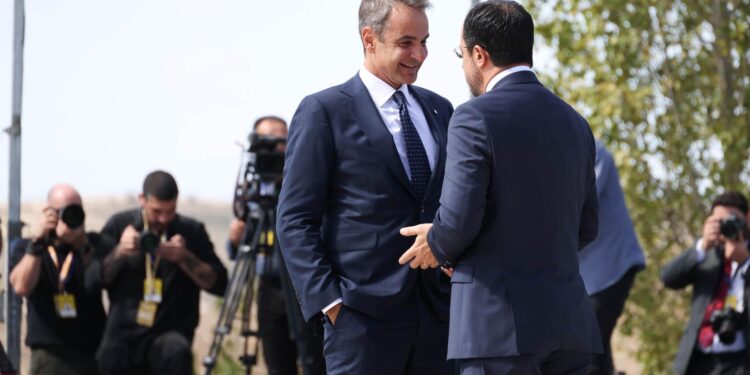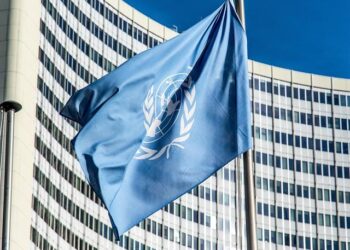Rival leaders in Cyprus are scheduled to hold informal talks with the United Nations chief later this month, as efforts to resolve the longstanding division of the island gain renewed momentum. The meeting, announced by the UN and reported by AP News, aims to foster dialogue between the Greek Cypriot and Turkish Cypriot communities, whose decades-long conflict has remained unresolved despite numerous diplomatic initiatives. This informal engagement marks a significant step in the ongoing quest for a comprehensive settlement to reunify the island.
Rival Leaders Prepare for Informal Talks with UN Chief to Break Cyprus Deadlock
Efforts to resolve the long-standing Cyprus issue have gained momentum as the island’s rival leaders prepare for informal discussions with UN Secretary-General AntĂłnio Guterres later this month. The talks aim to bridge deep-rooted divisions between the Greek Cypriot and Turkish Cypriot communities, which have been politically separated since 1974. Diplomats express cautious optimism that these informal meetings could pave the way for renewed negotiations after years of stagnation.
The agenda is expected to focus on core challenges, including governance, security arrangements, and territorial adjustments. Both sides have indicated readiness to engage in open dialogue without preconditions, signaling a potential breakthrough. Key topics include:
- Federal structure and power-sharing mechanisms
- Demilitarization and security guarantees
- Property rights and territorial sovereignty
| Leader | Community | Position on Talks |
|---|---|---|
| Ersin Tatar | Turkish Cypriot | Open to dialogue, emphasizes equal status |
| Nikos Christodoulides | Greek Cypriot | Seeks comprehensive federal solution |
| AntĂłnio Guterres | UN Chief | Facilitator aiming for progress |
Key Challenges Facing Cyprus Negotiations Explored Ahead of High-Level Meeting
The upcoming informal meeting between Cyprus’s rival leaders and the UN chief shines a spotlight on the persistent hurdles that have long impeded progress in reunification talks. Central to these difficulties are deep-rooted issues surrounding governance and security. Both sides continue to dispute the power-sharing mechanisms, with concerns about sovereignty and representation remaining at the forefront. Additionally, the entrenched presence of foreign troops on the island exacerbates tensions, making consensus on demilitarization a daunting task.
Other significant points of contention include economic disparities and property claims stemming from decades of division. The humanitarian implications of settling displaced populations and ensuring equitable access to resources further complicate the dialogue. Key challenges can be summarized as:
- Governance Structure: Disagreements on federalism versus confederation models
- Security Arrangements: Withdrawal of non-Cypriot forces and guarantees of safety
- Property Rights: Resolving claims related to displaced residents
- Economic Integration: Bridging disparities to foster cooperative growth
| Challenge | Current Status | Potential Impact |
|---|---|---|
| Governance | Deadlock on power-sharing model | Stalls entire negotiation process |
| Security | Foreign troops remain | Heightens mistrust and instability |
| Property Claims | Complex legal disputes | Delayed refugee resettlement |
| Economic | Uneven development | Potential source of future conflict |
Experts Recommend Confidence-Building Measures to Support Cyprus Peace Process
In the wake of ongoing tensions, international experts have underscored the urgency of implementing confidence-building measures that could pave the way for renewed dialogue between the divided communities on the island. Key recommendations include enhancing people-to-people contacts, expanding bi-communal cultural and educational programs, and initiating joint economic projects designed to foster mutual trust and cooperation. These measures, many stress, are essential precursors before formal negotiations can gain sustainable momentum.
Among the suggested steps, experts highlight the importance of practical, low-profile initiatives that avoid political roadblocks. The following table summarizes several priority areas identified by peacebuilding specialists:
| Confidence-Building Measure | Expected Impact | Implementation Timeframe |
|---|---|---|
| Cross-border education exchanges | Fosters understanding among youth | Short-term (6-12 months) |
| Shared infrastructure projects | Encourages joint economic interests | Medium-term (1-2 years) |
| Joint environmental initiatives | Builds cooperation on neutral grounds | Short to medium-term |
| Enhanced communication channels | Reduces misunderstandings | Immediate to short-term |
The focus remains on incremental progress, avoiding unrealistic demands or premature political concessions. Experts warn that consistent international support and sustained local engagement will be crucial to turning these initiatives into meaningful steps toward reconciliation on the island.
Wrapping Up
As preparations continue for the upcoming informal meeting with the UN chief, hopes for progress in Cyprus’s longstanding dispute remain cautiously optimistic. Observers will be closely watching whether this dialogue can break the current stalemate and pave the way for renewed negotiations toward a comprehensive resolution. The international community remains engaged, emphasizing the importance of unity and cooperation in achieving lasting peace on the island.
















